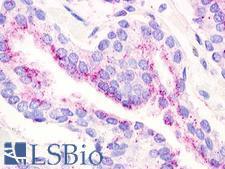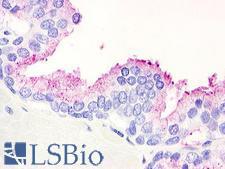Login
Registration enables users to use special features of this website, such as past
order histories, retained contact details for faster checkout, review submissions, and special promotions.
order histories, retained contact details for faster checkout, review submissions, and special promotions.
Forgot password?
Registration enables users to use special features of this website, such as past
order histories, retained contact details for faster checkout, review submissions, and special promotions.
order histories, retained contact details for faster checkout, review submissions, and special promotions.
Quick Order
Products
Antibodies
ELISA and Assay Kits
Research Areas
Infectious Disease
Resources
Purchasing
Reference Material
Contact Us
Location
Corporate Headquarters
Vector Laboratories, Inc.
6737 Mowry Ave
Newark, CA 94560
United States
Telephone Numbers
Customer Service: (800) 227-6666 / (650) 697-3600
Contact Us
Additional Contact Details
Login
Registration enables users to use special features of this website, such as past
order histories, retained contact details for faster checkout, review submissions, and special promotions.
order histories, retained contact details for faster checkout, review submissions, and special promotions.
Forgot password?
Registration enables users to use special features of this website, such as past
order histories, retained contact details for faster checkout, review submissions, and special promotions.
order histories, retained contact details for faster checkout, review submissions, and special promotions.
Quick Order
PathPlusTM GPR21 Antibodies
GPR21 is a member of the G-protein-coupled receptor 1 family. G-protein coupled receptors are membrane proteins which activate signaling cascades as a response to extracellular stress. The encoded protein activates a Gq signal transduction pathway which mobilizes calcium. GPR21 exerts effects on the insulin signaling pathway (for example, it attenuates signaling when overexpressed), and inhibiting GPR21 is of interest in treating diabetes. In immunohistochemistry, GPR21 has membranous positivity that is putatively most prominent in the central nervous system, although it has low to variable expression in most other tissues. It is found in the thalamus, on nonpigmented neurons in the substantia nigra, on large pyramidal neurons in the caudate, putamen and amygdala, on granule neurons in the hippocampus, in the posterior nucleus of the hypothalamus, and on populations of cells in the anterior pituitary (as well as in Herring bodies in the posterior pituitary). In peripheral tissues, it is found on hepatocytes, spermatocytic precursors, neuroendocrine cells in the small intestine, neutrophils, populations of basally-oriented cells in breast epithelium, sweat lobules in the skin, and on a few other cell types in various tissues throughout the body.
References: Sci Rep. 2016; 6: 27002, PMID: 27243589
2 PathPlusTM Antibodies


☰ Filters
Products
Antibodies
(2)
Type
Primary
(2)
Target
GPR21
(2)
Reactivity
Human
(2)
Bat
(1)
Monkey
(1)
Pig
(2)
Application
IHC
(2)
IHC-P
(2)
Host
rabbit
(2)
Product Group
GPCR Database Antibodies
(2)
PathPlus Cancer
(2)
Clonality
polyclonal pc
(2)
Format
Unconjugated
(2)
Epitope
Cytoplasmic Domain
(1)
Transmembrane Domain
(1)
Publications
No
(2)

Cancer
Fast Shipping
GPR21 Rabbit anti-Human Polyclonal (Transmembrane Domain) Antibody
Pig, Bat, Human
IHC, IHC-P
Unconjugated
50 µg/$460

Cancer
Fast Shipping
GPR21 Rabbit anti-Human Polyclonal (Cytoplasmic Domain) Antibody
Pig, Human, Monkey
IHC, IHC-P
Unconjugated
50 µg/$460
Viewing 1-2
of 2
product results










